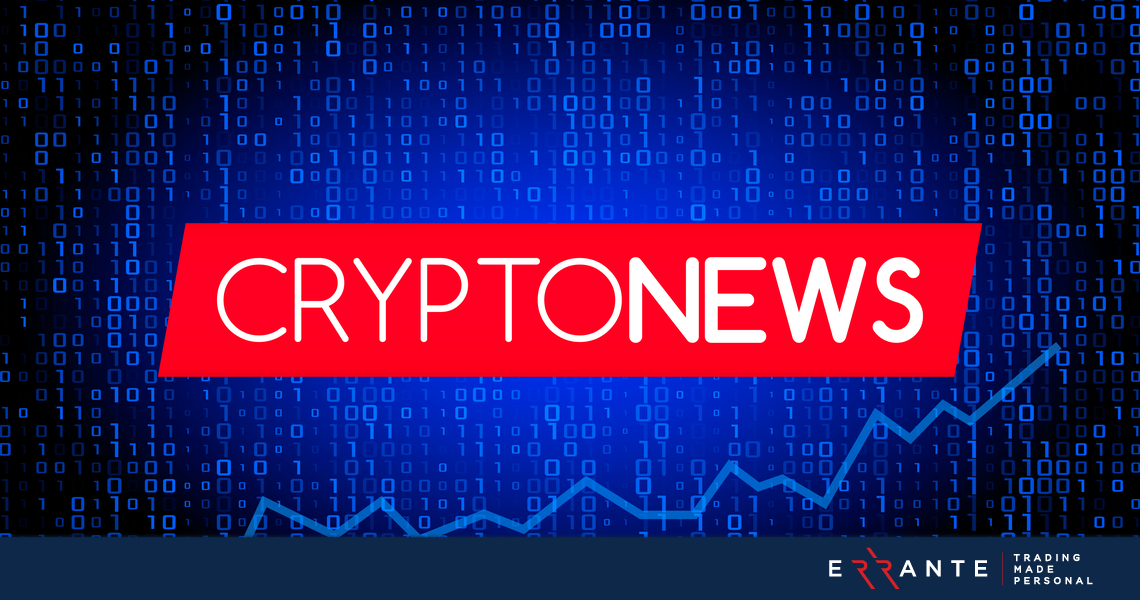The Duty of copyright News in Predicting Future copyright Trends
The Duty of copyright News in Predicting Future copyright Trends
Blog Article
Discovering the Impact of Governing Changes and Technical Technologies on Today's Digital Currencies Headings
The crossway of governing modifications and technical developments is fundamentally changing the landscape of digital currencies, triggering a re-evaluation of their role in the worldwide economic situation. Regulative bodies, such as the SEC and CFTC, are actively affecting just how digital properties are classified, while brand-new innovations are improving purchase efficiencies and security measures. This twin development increases vital inquiries about the ramifications for market characteristics and financier self-confidence. As we explore these growths, the inquiry remains: just how will these aspects shape the future trajectory of electronic money in a significantly interconnected world?
Current Regulatory Landscape
In the wake of quick developments in electronic money, the present governing landscape is progressing to deal with the intricacies and obstacles posed by these innovations. Governments and regulative bodies around the world are facing how to properly manage this growing market, which typically goes beyond nationwide boundaries.
Key regulatory strategies include the facility of structures that define electronic money, ensuring consumer protection and preventing illicit activities such as cash laundering and fraudulence. In the United States, companies like the Stocks and Exchange Payment (SEC) and the Product Futures Trading Payment (CFTC) are proactively engaging in discussions to clear up the classification of various digital assets and their regulatory ramifications.
In A Similar Way, the European Union is advancing its Markets in copyright-Assets (MiCA) guideline, which intends to produce a cohesive governing atmosphere across member states. Countries like China have chosen more stringent steps, consisting of straight-out restrictions on specific copyright activities.
As this regulatory landscape continues to establish, it will be crucial for stakeholders, including businesses and customers, to remain educated and adapt to the changing setting to alleviate dangers while utilizing on possibilities within the electronic money sphere.
Key Technological Innovations
Various technical developments are improving the landscape of digital money, considerably boosting their performance and safety. Among one of the most crucial innovations is the growth of blockchain modern technology, which offers a decentralized ledger that makes certain openness and immutability of deals. copyright news. This modern technology not only alleviates the danger of fraud yet also allows for real-time deal confirmation, fostering user trust fund
In addition, the emergence of wise contracts has reinvented exactly how contracts are performed within electronic money ecological communities. These self-executing agreements facilitate automatic transactions, getting rid of intermediaries and reducing costs related to conventional contract enforcement. Furthermore, developments in cryptographic strategies improve the safety and security of digital budgets, guarding customers' properties from prospective cyber dangers.
One more significant advancement is the integration of expert system in transaction surveillance and fraudulence discovery, enabling systems to determine dubious activities without delay. The introduction of Layer 2 scaling services, such as the Lightning Network, addresses scalability concerns, permitting for faster and less costly purchases on networks like Bitcoin.

Effect On Market Dynamics
Technological technologies in electronic money have not only boosted functionality and security yet have additionally significantly altered market characteristics. The intro of blockchain technology has increased openness and decreased purchase costs, bring about better effectiveness in trading and investment. This has urged a much more diverse variety of individuals, from retail financiers to institutional gamers, to involve with digital currencies, therefore intensifying market liquidity.
Additionally, the emergence of decentralized money (DeFi) platforms has interfered with standard economic systems, supplying users with alternative avenues for loaning, loaning, and trading. This shift has actually cultivated a competitive atmosphere where traditional banks are compelled to introduce or risk obsolescence (copyright news). With the rise of stablecoins, which offer price security among volatility, investors can now execute purchases with reduced risk, further affecting market habits
Additionally, the assimilation of artificial intelligence and artificial intelligence in trading techniques permits for much more advanced market analysis and predictive modeling. Therefore, capitalists are much better furnished to react to market changes, developing a much more vibrant trading atmosphere. Collectively, these advancements are reshaping the landscape of digital currencies, causing an extra interconnected, affordable, and efficient market.

Global Point Of Views on Policy
Regulatory techniques to digital money differ dramatically around the world, frequently reflecting differing economic priorities, social mindsets toward development, and levels of technical fostering. In the USA, regulatory bodies such as the SEC and CFTC grapple with specifying the lawful status of cryptocurrencies, focusing on capitalist protection and market stability. Meanwhile, the European Union is advancing comprehensive regulative frameworks like the marketplaces in copyright-Assets (MiCA) proposition, aiming to create a unified technique that cultivates innovation while ensuring customer security.
On the other hand, countries like China have adopted a straight-out restriction on cryptocurrencies, prioritizing financial control and economic security over development. On the other hand, nations such as El Salvador have accepted Bitcoin as legal tender, showcasing a strong dedication to financial incorporation and economic modernization.
Developing countries often discover themselves browsing a complicated landscape, stabilizing the requirement for regulation with the possible benefits of digital money in driving financial development. Overall, the international regulative setting continues to be fragmented, with continuous discussions and adjustments as governments seek to strike a balance in between promoting development and mitigating risks associated with electronic money. This dynamic landscape highlights the requirement for ongoing international participation and discussion amongst regulators.
Future Fads in Digital Currencies
As regulative structures develop, the landscape of digital money is poised for substantial improvement. Emerging trends indicate a merging of governing clarity and technical improvement, which will certainly form the future of digital currencies. Central Bank Digital Currencies (CBDCs) are prepared for to acquire traction as governments explore their potential to improve monetary policy efficiency and financial inclusion.
All at once, decentralized finance (DeFi) platforms are expected to challenge standard financial systems, using cutting-edge economic solutions that run without middlemans. This get redirected here change can bring about a re-evaluation of existing regulations to accommodate the special features of DeFi while ensuring customer defense and systemic security.
In addition, the assimilation of expert system and artificial intelligence in copyright trading and threat assessment will certainly redefine investment techniques and market dynamics. As electronic money come to be progressively traditional, issues such as cybersecurity threats and regulatory conformity will certainly require robust remedies.
Finally, public perception and fostering will play a critical function in establishing the trajectory of digital currencies. Raised understanding and education and learning relating to the advantages and risks linked with digital money will certainly drive acceptance, inevitably influencing the regulative landscape and market growths in the years to come.
Verdict

Report this page